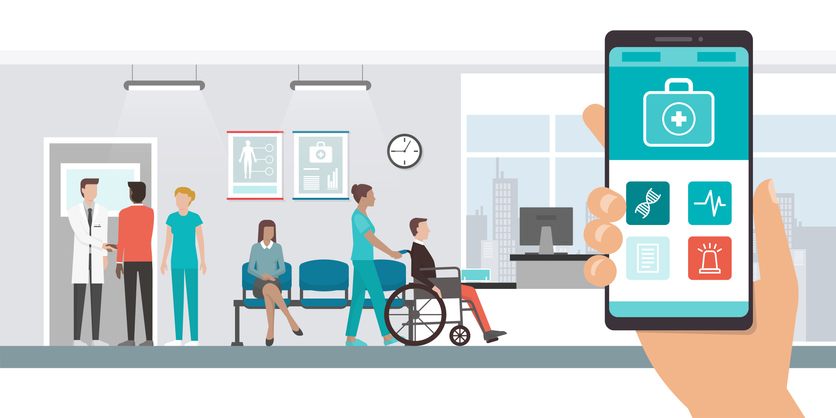Highlights of the important and the interesting from the world of health care:
The beauty of ‘episode payments’: To change the course of out-of-control health spending in the U.S., we need to change the way doctors and hospitals are paid, a University of California economist says. Moving to so-called “episode payments” could be the way to do that. Under that model, providers are paid for “episodes” of care. For example, a patient suffering a heart attack would be viewed as an episode. That episode starts with the onset of the patient’s chest pain, continuing with urgent care by a physician or emergency services provider, followed by hospitalization services and any procedures performed, and ends with rehabilitation services during a recovery stage. The idea is that, unlike the current fee-for-service model, doctors and hospitals don’t have incentive to order unnecessary tests or procedures, which brings the cost of care down.
It’s an intriguing idea, though certainly lots of details would need to be worked out. For example, it’s unclear to me how providers would get paid if a number of them give care as part of the same episode–and that’s just the beginning. Nonetheless, with payment reform a big part of health reform, episode payments may be an idea whose time has come, or at least one that should be explored extensively.

With the Rise of AI, What IP Disputes in Healthcare Are Likely to Emerge?
Munck Wilson Mandala Partner Greg Howison shared his perspective on some of the legal ramifications around AI, IP, connected devices and the data they generate, in response to emailed questions.
“Unsustainable” growth in cancer-treating costs: Spending on cancer care in the U.S. hit $90 million in 2008, more than triple the amount in 1990, USA Today reports. Reasons for the sharp increase include expensive new drugs, robotic surgeries and radiation techniques–plus the number of patients who receive treatment for the disease has increased, too. The great upswing in costs is troubling for a number of reasons, in particular because it obviously leads to people not receiving the care they need since often they can’t afford it. Given that one of two men and one of three women will be diagnosed with cancer in their lifetimes, this is a very serious matter and one that figures to affect nearly everyone–either directly or indirectly. To provide numbers relevant to individuals, consider this: The cost of care for a breast-cancer patient doubled in just 11 years, coming at a cost of nearly $13,000 per person. And that dollar amount is from 2002.
It’s an “unsustainable” growth rate, according to the chief executive of the American Cancer Society. The problem, according to two researchers, is that drugmakers and doctors have no economic incentive to lower costs–the more care costs, the more money they make, generally. While it’s debatable whether we should crown cancer as the victor in Richard Nixon’s “War on Cancer,” if such high costs persist, we’ll likely lose the fight.
The “immediate” benefits of reform: Maggie Mahar lists 10 “immediate” benefits to Americans “when” health reform passes, including most of the usual suspects such as an end to exclusions based on pre-existing conditions and tax credits to small business. It’s a short and worthwhile read. Take a look at the comments for a little healthy debate on the health overhaul plan. Costs seem to be most readers’ top concern, and rightly so. We should get further clarity on the question of costs once the Congressional Budget Office releases its report for the “new” legislation–that is, the bill the Senate passed in December, now with some minor tweaks added at President Obama’s behest. The CBO report could be out as soon as today.
Deep conversations equal happiness? Apparently so, according to a new study published in Psychological Sciences, which finds that people who have a greater number of substantive conversations are more likely to rate themselves as happy, NPR reports. The researchers admit that the study brings up the proverbial chicken-egg scenario: Do deep conversations make people happy, or are happy people simply more likely to engage in deep conversations? Either way, it’s a little motivation to talk about something besides sports and the weather.
Photo from flickr user juhansonin














